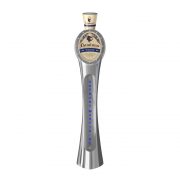4 months ago In beer country, nothing seems more attractive than to embrace the brewing profession. Yet, don’t be fooled by the increasing number of amateur-magicians, becoming a brewer requires a lot of personal commitment, scientific knowledge and expertise! When it comes to beer-making, Willem Van Herreweghe, a master brewer of the historic Timmermans Brewery and reputed global expert, is clear that “It is a complex trade which requires special attention and specific knowledge of engineering, agriculture and biochemistry, usually validated by a brewing engineer or a biologist diploma.” Arduous Studies… and a Lot of Theory to Swallow! Learning brewing technology is not a simple business. Two universities located in Ghent and Louvain, Belgium offer specialized programs in this field.”It was not until the last three years that the specifics of brewing are addressed: malting, fermentation process … There is also a shorter program to become a laboratory brewer, focused on the professional analysis of colours, Ph, alcohol and chromatography, bottling, and purification processes. ” The trend towards amateur brewers starting microbreweries leaves the master brewer rather perplexed: “To make a home-made beer ready to be tasted in three weeks is easy enough. But, to make a beer that will be tasted in six months is somewhat more complex. Many people throw themselves in business driven by their enthusiasm, but lacking experience, with no business plan and no means. Moreover, we are beginning to sense a certain amount of disappointment in the market, and we expect many microbreweries will soon be up for sale at a very low price, in favour of large manufacturing groups with long-term marketing visions. The other danger represented by amateur brewers is that, due to a lack of experience, they may produce and market low quality products potentially damaging the image of the entire category, especially with regards to exports, a sensitive part of our business.” Willem Van Herreweghe is concerned that the profession is not protected and regulated by mandatory professionals and supervised by experienced consultants. Measures such as these could better ensure compliance with product analysis requirements, and adherence to quality criteria and processes. “Inattentive manufacturing or uncontrolled grain selection can promote the development of harmful toxins. Government inspectors do not conduct tests to detect these kinds of toxins in beer. A brewing engineer is aware of these dangers and knows how to avoid them. Belgians have brewery engineering in their genes! Willem Van Herreweghe’s only regret is the absence of practical training during curricula, both in graduate and undergraduate school. Young graduates access the profession with an education and ambition, but no practical experience such that they would not know how to enter a tank and check its cleaning. Existing traineeships are very theoretical. Trainees would benefit from engagement with brewery workers and learning the practical aspects of the trade. In his opinion, one should spend at least three years in the different departments of a brewery to gain a good experience. The brewing industry is currently in short supply of professional brewers, who are in demand all over the world: “The university programs are difficult and arduous. You have to become an expert in microchemistry, biochemistry and there is a lot of mathematics … With a proper education, a great career awaits you. Belgian brewing engineers enjoy a reliable, good reputation. We are requested in France, Germany, as well as the USA, South America and China. It should be noted that Belgian universities work closely with the breweries with regard to the most advanced aspects of brewing technology since the 19th century. They have been funding research, namely on the combined use of aromatics and hops, on yeast culture, or on aging processes. Collaboration between the brewing industry and the academic community is positive and important for improving product quality; it reinforces the reputation of the brewing industry as a whole and of our products. In terms of formal education available, there is little competition. Before the war, Poland had a very reputable university in Lubz which has recently been reopened. Their pre-war know-how has not yet been restored and therefore, there is no pool of highly qualified graduates there. It is therefore a trade with a high potential, both demanding and exciting, in which we are world leaders! ” info@sweetglobe.be
Share:Original Source Here

